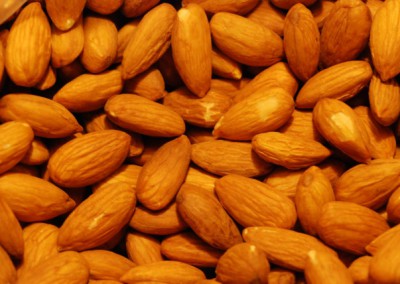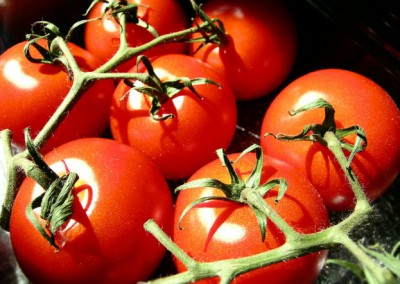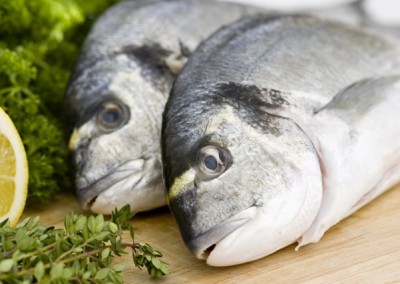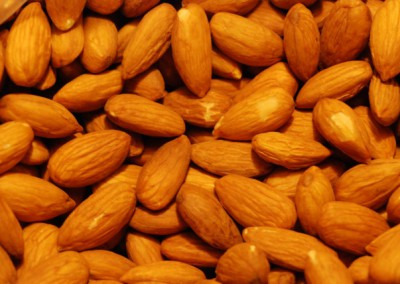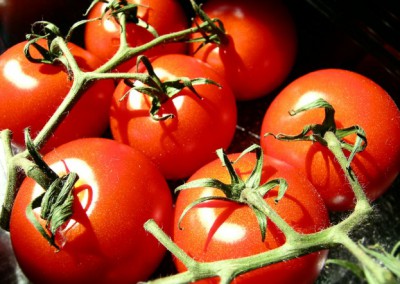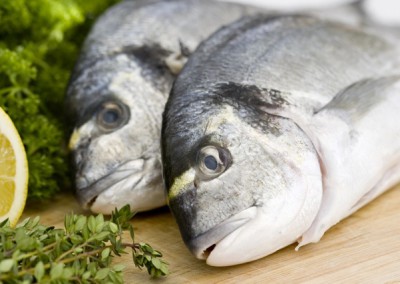Nutrition & Healthy Eating
This is a vast subject which would fill volumes of books and still not be satisfied. One of the greatest books written on the subject of nutrition was ironically written by a dentist.
 Weston A. Price was a leader in the field of dentistry before he turned his attention to diets and the relationship between nutrition and health. He noticed that the dental health of many of his patients was deteriorating as they consumed more and more processed foods.
Weston A. Price was a leader in the field of dentistry before he turned his attention to diets and the relationship between nutrition and health. He noticed that the dental health of many of his patients was deteriorating as they consumed more and more processed foods.
He decided to investigate this relationship between processed food and disease by traveling around the world and visiting indigenous people who had not yet been exposed to processed foods. The result of his travels and investigations was his book, Nutrition and Physical Degeneration: A Comparison of Primitive and Modern Diets and Their Effects.
His findings can be summarised by the guiding principles of healthy eating as proposed by the Weston A Price foundation:
- Eat whole, natural foods.
- Eat only foods that will spoil, but eat them before they do.
- Eat naturally-raised meat such as fish, seafood, poultry, beef, lamb, game, organ meats & eggs.
- Eat whole, naturally-produced milk products from pasture-fed cows, preferably raw and/or fermented, such as whole yogurt, cultured butter, whole cheeses and fresh and sour cream.
- Use only traditional fats and oils including butter and other animal fats, extra virgin olive oil, expeller expressed sesame and flax oil and the tropical oils— coconut and palm.
- Eat fresh fruits and vegetables, preferably organic, in salads and soups, or lightly steamed.
- Use whole grains and nuts that have been prepared by soaking, sprouting or sour leavening to neutralize phytic acid and other anti-nutrients.
- Include enzyme-enhanced lacto-fermented vegetables, fruits, beverages and condiments in your diet on a regular basis.
- Prepare homemade meat stocks from the bones of chicken, beef, lamb or fish and use liberally in soups and sauces.
- Use herbal teas and coffee substitutes in moderation.
- Use filtered water for cooking and drinking.
- Use unrefined Celtic sea salt and a variety of herbs and spices for food interest and appetite stimulation.
- Make your own salad dressing using raw vinegar, extra virgin olive oil and expeller expressed flax oil.
- Use natural sweeteners in moderation, such as raw honey, maple syrup, dehydrated cane sugar juice and stevia powder.
- Use only unpasteurized wine or beer in strict moderation with meals.
- Cook only in stainless steel, cast iron, glass or good quality enamel.
- Use only natural supplements.
- Get plenty of sleep, exercise and natural light.
- Think positive thoughts and minimize stress.
- Practice forgiveness.
If you were to follow these principles as closely as possible you would be surprised at how healthy you can become over a period of months and years. You would be supplying your body with the essential elements it needs to rebuild itself in the correct amounts and in the correct balance. It’s really as simple as that.
Now to actually practice these principles is not as easy as it sounds. Why? Because our eating habits have been conditioned according to
- what is easily available (ie: the “food” in local shops and supermarkets whose shelves are mostly full of processed produce or foods grown with pesticides and herbicides)
- what can fit into our time restricted schedules (ie: creating enough time to seek out good food and prepare real, unprocessed food which are truly nourishing)
- our budgets (ie: allowing for the fact that organic foods do cost more although that paying a higher price is in fact less costly in the end)
- how our taste buds have been trained (ie: just ask anyone their reaction to organ meats or the fermented foods that smell “funny” ; our ancestors were not so picky)
- popular misconceptions (ie: “low fat is healthy”, “meat is bad for you”, “salt is unhealthy”)
Aside from the twenty guidelines above, here are a number of suggestions I would like to propose:
| Devote a reasonable percentage of your total budget to food |
|---|
| Buy the best you can and remember quality is a better bet than volume |
| As much as possible do not buy your food in supermarkets, and instead |
| Go to farmers markets and in particular those selling organic food |
| Plan what you are going to eat and prepare & schedule your meals in advance |
| Try to include lacto-fermented foods with every meal in some way |
| In addition to cooked foods, also eat some (properly prepared) raw foods every day |
| Prioritise coloured vegetables over fruit in your “5-a-day” portions |
| If it tastes sweet it has probably got sugar in it or worst still artificial sweeteners… |
| Avoid all sugary foods, retrain your taste buds to healthy food |
| Don’t worry about eating good quality sea salt ; eat as much as you want |
| Limit the starchy carbs ; they should never dominate a meal (think pizzas or pasta meals) |
| Don’t count calories or go on any diets advertised as “weight reduction” |
| If you eat well your hunger will be balanced to optimal weight |
| Good fats are ABSOLUTELY ESSENTIAL ; eat plenty of them |
| Meat is VERY good for you in reasonable amounts ; especially organ meats |
| Saturated fats should dominate a good diet |
| Eat only modest amounts of polyunsaturated fats which have not been spoilt or damaged |
| Obtain most of your polyunsaturated fats directly from fresh vegetables |
| Never cook with vegetable oils |
| Only buy vegetable oils if they are virgin, cold pressed, organic, & hermetically sealed in glass |
| Eat as much as you like of saturated fats and coloured vegetables |
| Eat sufficient protein |
| Eat starchy carbohydrates in MODEST amounts |
| Above all ENJOY your food and never rob yourself of the occasional, well deserved (and hopefully healthy) treats |
Sugar & Pre-diabetes or Insulin Resistance
The biggest single problem with our modern diet is that there’s too much sugar in it. If you were to walk into a supermarket and look at all the packaged goods, you would be amazed at how many of them contain significant amounts of sugar. This is the primary reason why so many of us are succumbing to diabetes.
However long before frank diabetes occurs, there is a pre-diabetic condition which probably even more people suffer from and which continues un-noticed simply because we are not looking for it. This condition is known as insulin resistance and it underlies many chronic conditions such as cardio vascular disease and cancer. Even Alzheimers is being recognised more than ever as being related to blood sugar dys-regulation.
You may test perfectly well for fasting blood sugar but the question that’s not being asked is how much insulin is your pancreas having to produce to keep blood sugar levels low. Excess insulin is a metabolic toxin for the body causing inflammation and a cascade of unwanted side effects that slowly but surely deteriorate into serious disease.
Sugar is addictive so reducing how much of this you eat is essential if you want to make healthy changes to your diet. Aside from avoiding the obviously sweet items such as sweets, biscuits, sugary chocolate, and soft drinks, my advice is: if it comes off a supermarket shelf and it’s in a package or a can, don’t buy it. That may sound radical or unrealistic to you but nevertheless make it your goal to take your buying habits away from the supermarket aisles. Your body will thank you for it.
Trans fats and Oxidized fats
After sugar, the dietary public enemy number two is trans or oxidized or otherwise contaminated fats. Basically there are three types of fats:
- saturated fats (fats derived from land animals – dairy products and meat)
- mono-unsaturated fats (olive oil being the best known and widely used source), and
- polyunsaturated fats (fats from fish and vegetables)
Saturated fats have been accused of causing atherosclerosis but this accusation is unjustified and unproven. In fact of all the three types, saturated fats are the ones you can most safely eat in higher quantity. The body knows how to metabolise saturated fats very well, using them efficiently for energy and as necessary for use in cell membranes.
Polyunsaturated fats have been touted as being the healthiest fats and it’s true that you need a regular supply of these fats as well. However there are a number of cautionary points to keep in mind. Polyunsaturated fats are delicate and easily oxidised so never cook with them. Also they can oxidise just as easily in the heat of the body so eating excessive amounts of them is also not a good idea either. The refining of vegetable oil and its consumption in high volume is a very recent phenomenon and occurred in tandem with the emergence of the plethora of chronic
disease we face today.
Even worse than over consumption of refined vegetable oils is the consumption IN ANY AMOUNT of trans fats. These are vegetable oils which have been modified in industrial food processes to help them stay solid at room temperature and remain unspoilt for longer shelf life. Margarine and many processed baked goods contain seriously unhealthy amounts of trans fats. Avoid trans fats at all costs. Last but not least are mono-unsaturated fats and the best known dietary source of these is olive oil. Olive oil is a super food and should be consumed on a daily basis AS LONG AS it’s virgin, cold pressed, organic, and bought in glass containers (preferably hermetically sealed).
Never buy oil which is liquid at room temperatures in plastic containers. Such oils are usually industrially produced and are therefore contaminated with the toxic residues of these processes and the plastic toxins that leach out from the containers.
Fasting and Blood Sugar Control
I would like to add a final word about fasting. Is it healthy or not? The answer is it depends. If your diet is not good and if the food you eat is of poor quality and poorly chosen, it will probably make a bad situation worse. Periods of fasting are a stress on the body and if you already have insulin resistance or poor blood sugar control, the stress is all the greater.
However if you have a good diet and you are in good health then that same stress is experienced as a positive signal to the body which results in a cleaner, healthier metabolism. So fasting can work but beware, I would recommend only for those of us healthy enough or with strong enough adrenal function to benefit from it.


